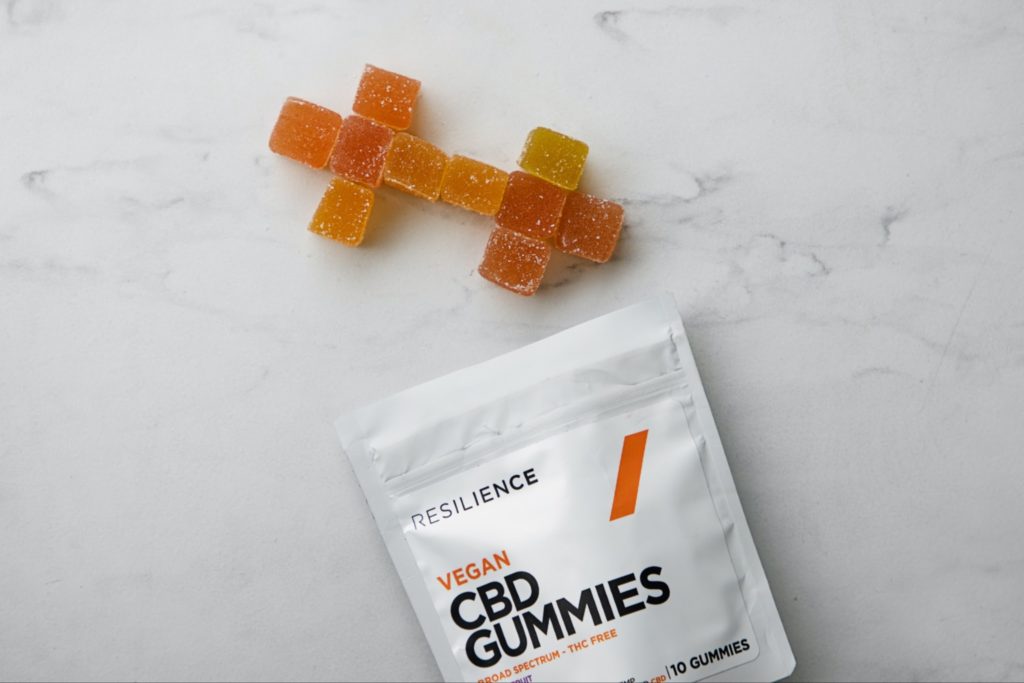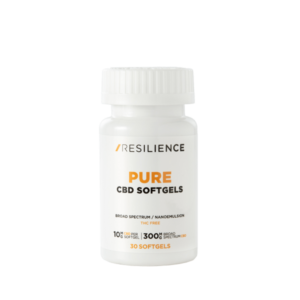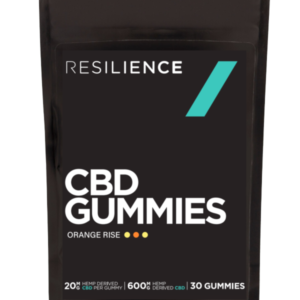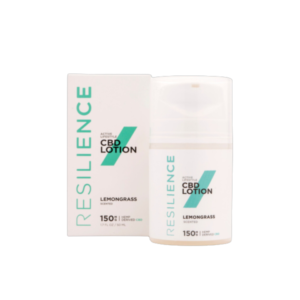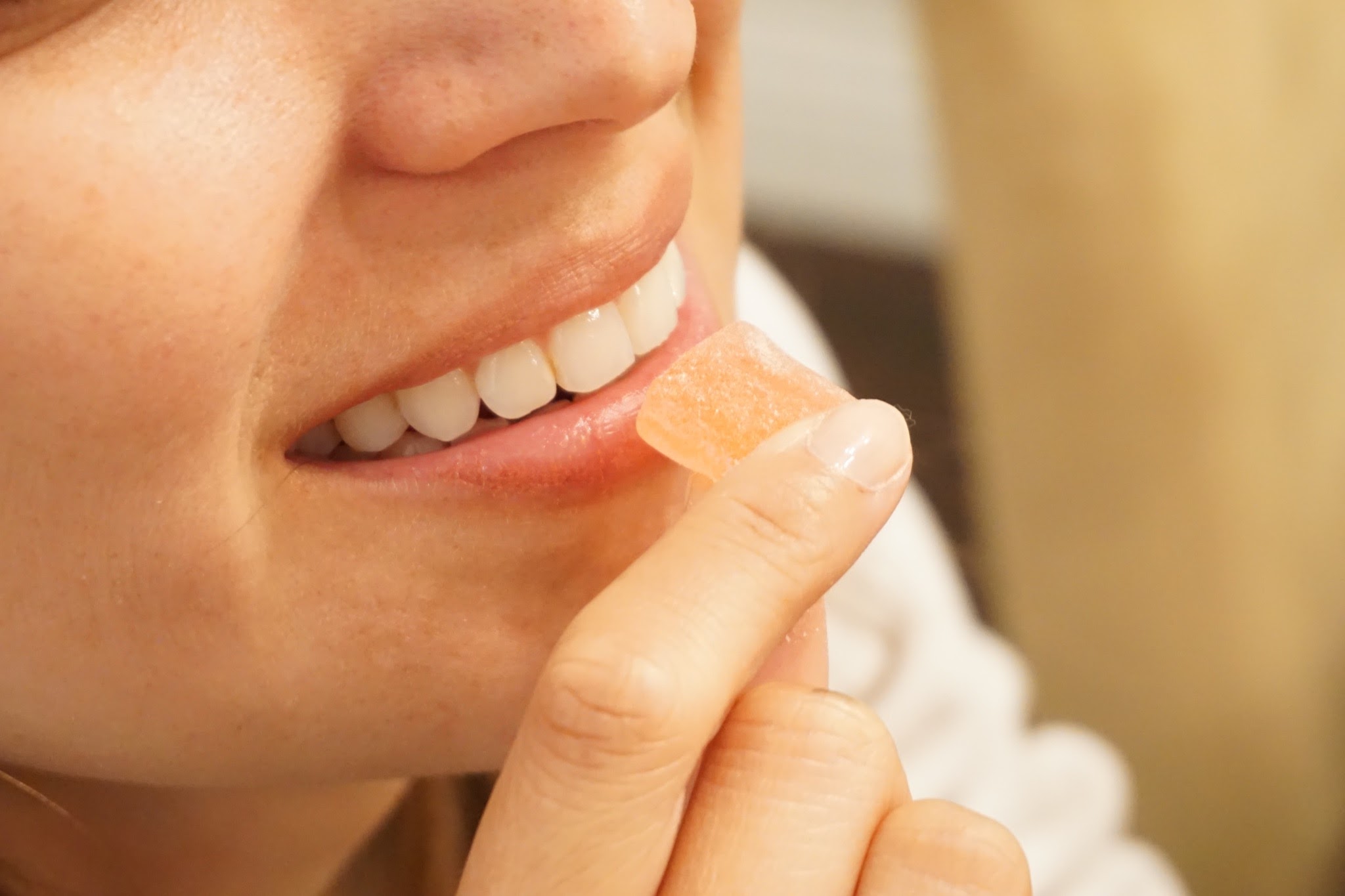
Before you introduce something new to your body, it’s important to do your research. You have to look at the tradeoffs between potential benefits and side effects. And CBD is no different.
So does CBD have side effects? A few. Maybe. Sometimes. For some people.
While most users report overwhelmingly positive experiences, there’s always a chance that it won’t quite sit right with you—as is true of any substance, CBD or not. Today, we’ll discuss how CBD products interact with your body while covering some of the rare side effects. Let’s review.
Key Takeaways:
- There may be potential side effects, but they are generally rare and relatively mild.
- Pure CBD provides many more benefits to support your health and vitality.
- CBD products from dishonest or poorly regulated companies are more likely to produce these undesirable effects; therefore, you must be vigilant and know your source.
What Is CBD?
For those new to the subject, cannabidiol (CBD) is one of over 100 cannabinoids—naturally occurring compounds—found in the cannabis plant.
The other prominent cannabinoid you may be familiar with is THC, the primary psychoactive compound in marijuana. But unlike THC, CBD is non-psychotropic, meaning it won’t impact and inhibit brain activity in the same way, nor does it cause the tell-tale “high” of marijuana. If that was one “side effect” you were worried about, you can go ahead and cross it off your list as this is one of the most significant differences between CBD vs. THC.
Recently, we’ve learned that our brains and bodies naturally produce endogenous cannabinoids. These interact with our endocannabinoid system (ECS) to help regulate various bodily functions, including:
- Mood
- Memory
- Motor function
- Immune system responses
- Physical discomfort
According to Livescience: “Our brains have specific receptors designed to accept cannabinoids, known as CB1 and CB2. These receptors are responsible for the assimilation of cannabinoid molecules into your system, resulting in the psychoactive and immune responses correlated with cannabis consumption.”
Although clinical studies on the benefits of CBD are still underway, all signs are optimistic. As a result, Congress legalized the production and sale of hemp-based CBD—CBD which contains no more than 0.3% THC—nationwide.
What Are the Potential CBD Side Effects?
The vast majority of people won’t experience any side effects when they incorporate either an oral or topical CBD product into their daily routine. Most will only feel the intended benefits. However, a few users have reported unpleasant albeit minor issues. While none of these are cause for concern, it’s still important to know exactly what you’re putting in your body and what might happen.
Commonly reported CBD side effects include:
- Dry mouth – More commonly associated with marijuana consumption, some CBD users report having a “cotton mouth” after taking CBD oil. Most likely, this is because CBD can sometimes inhibit saliva production. Drinking water and chewing sugar-free gum can help mitigate the mildly unpleasant sensation of dry mouth if it comes up.
- Upset stomach – A scant few CBD users have reported digestive issues, which may include nausea, vomiting, or diarrhea. That said, this is one of the rarest adverse effects and it’s hard to say whether it’s attributable to CBD or simple coincidence.
- Appetite fluctuations – Some users report an appetite increase after taking CBD, while others report a decreased appetite. But many factors could potentially impact hunger while taking CBD, including genetics, the type of product, and diet.
- Drowsiness – CBD is known to have a relaxing effect on the mind and body. When used with alcohol, drugs, or other medications that slow down brain activity, it can increase the risk of sedation, though this is a side effect of mixing substances, not of CBD itself. Still, you should avoid driving or operating heavy machinery after CBD intake, even if it’s not explicitly illegal.
- Mood changes – Some users report negative changes in their mood patterns with CBD intake, most commonly experienced in the form of agitation or irritability.
- Impacting other medications – If you’re on other types of medications or prescriptions, CBD could impede how they work and interact with your body. This could cause even more severe side effects. If you regularly take some type of medication or pharmaceutical drug, speak to your doctor before adding CBD to your routine.
The study of CBD is still new. There are many things we don’t yet know about why some users experience side effects. There are also several compounding factors that could increase the likelihood of these rather unpleasant, adverse effects, such as:
- Different methods of consumption
- Length of consumption
- Levels of intake that trigger risks
- CBD interactions with other herbs, plant materials, or pharmaceuticals
Dishonest CBD Labeling
Another potential issue is that CBD research and production is still in its developmental phase. Some even call this the Wild West of CBD, though it’s not nearly as dangerous for anyone passing through.
Although the substance has been legalized, the market is largely unregulated, meaning that some untrustworthy companies make claims or promises that their products can’t back. They could mislead consumers about anything from the benefits to the quality of ingredients—we’ve already seen it happen from other CBD companies.
In 2017, a JAMA study purchased and analyzed 84 CBD products from 31 companies. Their findings were eye-opening:
- More than 70% of the products didn’t fully meet the claims on their label
- 26% contained less CBD than labeled, which could negate any positive effects
- 21% contained THC at higher than legal levels, leading to the onset of a psychoactive effect
- 25% were entirely mislabeled
- Some products contained undesirable ingredients such as:
- Synthetic cannabinoids
- Contaminants
- Heavy metals
- Pesticides
Because of the dishonesty within our industry, we’ve made it a priority to uphold our standards of transparency, accuracy, and quality, and to educate users on the warning signs. By learning how and when to take CBD oil, whether it be before bed or after a strenuous workout, it is our goal to help consumers have a positive experience.
Ways To Avoid CBD Side Effects
Are you interested in taking CBD oil but want to avoid the potential side effects? While you can’t control how your body reacts to a substance, you can take a few extra steps towards a safer and more beneficial experience, including:
- Knowing your CBD source – It’s entirely possible that impurities, such as those found in the study above, could contribute to side effects that some users have experienced. This is why it’s so important that you always do your research and know your CBD source. Only purchase CBD from a reputable company that has lab-tested all of its products.
- Taking the proper dosage – Many issues with CBD occur when a person takes far more than recommended. Your CBD oil product should have clear instructions on proper dosage (if it doesn’t, this could be another red flag). Start with the minimum recommended dose. If you don’t feel the intended effects, slowly up your intake. But even then, you shouldn’t drastically exceed what the product advises.
- Not mixing CBD with medications – As mentioned, CBD may inhibit or exacerbate other medications you’re on. Speak to your doctor first before adding a new supplement to your health and vitality routine to lessen the likelihood of an adverse reaction occurring.
Finally, if you do start experiencing any of the unpleasant effects of CBD, stop immediately. While most people will have no issues incorporating a CBD oil product, some may—if that person is you, it’s better to be safe than sorry. Take a pause and consult with your doctor before resuming your intake. There may be a simple explanation with an easy fix so you can reap the benefits of CBD and enjoy it safely.
Benefits of CBD
As we said earlier, evaluating a substance like CBD is about weighing the pros and cons to determine if it’s worth it for you. The potential problems we mentioned are few and far between but the benefits are usually much more far-reaching—decide for yourself if the latter outweighs the former.
Here are some of the many overwhelming benefits of CBD:
- Soothe aches and discomforts – To achieve your physical fitness goals, you might need a recovery assistant. Both topical CBD and oral CBD can help you bounce back quickly from each strenuous workout so that soreness never gets in the way of your most active life ever again, and you can stick to your routine for years to come.
- Help manage daily stress – Stress is natural, especially with all of the responsibilities you have to juggle each day. A daily dose of CBD can help promote mental well-being to help you keep those balls in the air with ease.
- Support sleep – Sleep is one of the most important ingredients in a healthy life. And for athletes, it’s the primary way your body recovers from exertion. A sleep-centric product can help calm your mind and body, making it easier to fall asleep and then stay that way, which is why CBD for athletes particularly has become a beneficial tool.
- Decrease tension – Release the muscle tension you’ve been carrying around through a daily de-stressor that targets both your mind and your body. CBD is the perfect solution to put you at ease.
- Improve your mood – When you’re in a good mood, everything seems more manageable. You’re ready to take on the world rather than hide from it. CBD is a natural way to get that lift you need.
- Boost energy – Rather than turning to coffee or energy drinks, CBD can give you some much-needed pep in your step without the unpleasant caffeine jitters that sometimes trigger feelings of anxiety.
High-Quality CBD—Resilience
The vast majority of people who take CBD will have nothing but good news to report. However, some users do report issues like mood changes, digestive problems, and drowsiness. Some of these minor side effects may be a simple issue of body chemistry or uncommon interactions, while others could be a result of improper labeling and unregulated ingredients.
You can’t control the former, but you can avoid the latter by choosing a high-quality, trusted pure CBD source, taking the recommended dosage, and consulting with a doctor before combining CBD with other types of medications.
As for that high-quality source, Resilience is the obvious choice. Whether you want an oil, topical, or chewable CBD gummy, Resilience provides premium quality products with third-party lab results you can trust.
 Written by: Michael Tatz | Linkedin
Written by: Michael Tatz | Linkedin
Michael Tatz is the Co-Founder of Resilience CBD, and a passionate leader in the health & fitness world helping others rise to and crush their wildest goals. A former Division 1 college wrestler, Army Officer, and investment manager at Goldman Sachs, he has pushed his body and mind to the limits on the mats, dressed in camo, and in the boardroom.
Today, he spends his time leading Resilience CBD to develop the absolute best recovery products for athletes everywhere. Resilience was founded after CBD personally impacted Michael’s life, and the brand was built to partner with everyday athletes in pursuit of conquering their most difficult challenges, rebounding after their toughest performances, and rising to their goals that once seemed impossible.
Sources:
Live Science. What is CBD? https://www.livescience.com/65811-what-is-cbd.html
NCBI. Labeling Accuracy of Cannabidiol Extracts Sold Online. https://www.ncbi.nlm.nih.gov/pmc/articles/PMC5818782/

